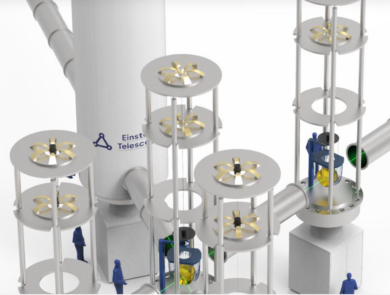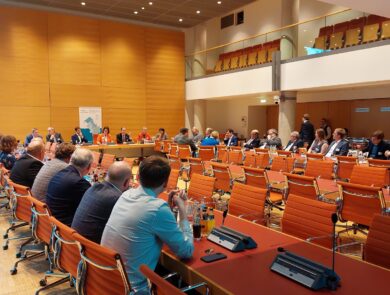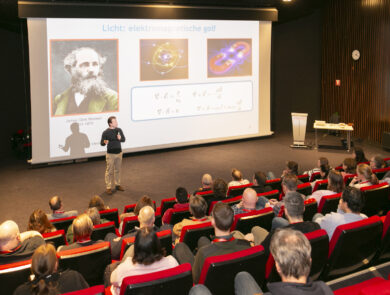Application Einstein Telescope submitted for National Growth Fund

On 31 October, the Dutch Minister of Education, Culture and Science Ingrid van Engelshoven submitted an application for the Einstein Telescope to the National Growth Fund, supported by her colleague of Economic Affairs and Climate Policy. This proposal was prepared by Nikhef, the Province of Limburg, regional development agency LIOF and the two involved ministries, assisted by Lysias Advies. The proposal contains a description of the project and a request for funding for the preparation phase until 2025. The application also contains a request for a reservation of funds for the Dutch contribution to the construction.
Development of the proposal
After submitting the pre-application for the National Growth Fund in May 2021, the Einstein Telescope team set to work in July to develop a full proposal. A big job that involved many different people. This resulted in an application that met the requirements for submission by 31 October. A summary of the proposal can be viewed on the website of the National Growth Fund.
Follow-up process
In the coming months, fund managers will first check whether the submitted proposal meets the entry criteria. If the application passes this test, it will go to the advisory committee for the National Growth Fund, which will assess the proposals in terms of content. Eventually, the government will make a final choice based on the advice of the committee. This whole process is expected to take about six months.
About the Einstein Telescope
The Einstein Telescope is a future underground observatory for measuring gravitational waves. The instrument will be much more accurate than existing detectors. This will enable it to explore an area of the universe a thousand times larger in search of gravitational waves, and to detect sources too weak for the current generation of instruments. Researchers will be able to study the precise structure of neutron stars, the birth of black holes and the structure of the universe immediately after the Big Bang.
The border region of South Limburg – the Euregio Meuse-Rhine- is one of the possible locations for this observatory. Housing the Einstein Telescope in this region could have a major positive impact on science, the economy and society in the Netherlands. If the requested investments are granted, the Netherlands will have the basis to establish a strong candidacy together with Belgium and Germany in 2024/2025.


